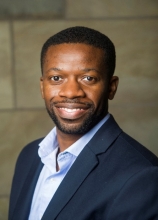BME Lecture Series: Jamal Lewis, University of California, Davis

Assistant Professor
Biomedical Engineering
Abstract: Current paradigms for the treatment of autoimmune diseases, such as rheumatoid arthritis (RA), are woefully inadequate, often missing the mark on desired physiological responses and not targeting the root cause of the disease. Predictably, novel approaches to re-establish immune homeostasis in patients afflicted by autoimmune conditions are now under intense investigation. Notably, we are developing an array of multifunctional, biomaterial-based anti-vaccines that can be easily administered to remediate some of the prevalent autoimmune diseases. In this talk, I will focus on two particulate systems currently under development in my lab, which attempt to control critical cellular and humoral mediators that engender conditions such as RA and autoimmune autism. Additionally, the Lewis lab is currently investigating a novel method to enhance intra-lymph nodal delivery of particulates. Likened to the Trojan horse used by the Greeks to infiltrate Troy, this approach has the potential to tremendously boost the efficacy of modulatory agents (including vaccines) in the treatment of any immune condition.
Share
Upcoming Events
-
MSE Special Seminar: Decarbonizing Industries for a Climate-resilient Future - From Renewable Energy to Sustainable Material Recovery
-
MAE 298 SEMINAR: Technology Developments for FIR Bolometric Detector Focal Plane Assemblies
-
CBE 298 Seminar: The Wisdom of the Crowd: Watching Bacterial Collectives (Re)shape Themselves
-
CEE Seminar: BIM and the Digital Twin
-
MSE Special Seminar: Revolutionizing Battery Technology - Engineering Quantum Materials for Enhanced Safety and Performance in Solid Electrolytes
